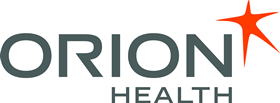Technology can be used to empower citizens to better manage their own wellbeing and healthcare needs, writes Nicole Allan
![]()
This is paid-for content from our commercial partners. Find out more
Digital connection and information sharing has taken on an elevated prominence and importance since the pandemic hit. For many, the necessary separation of social distancing has been mitigated by technology. That includes for healthcare consultations, with remote consultation becoming increasingly common in recent months.
Sponsored by
In this context, the NHS has a golden opportunity to make a lasting transformation to the way in which patients engage with services. After all, the need to move away from the traditionally paternalistic method of healthcare – instead empowering citizens to better manage their own wellbeing and healthcare needs – has long been emphasized.
Patient-facing digital systems could be the means through which to support this shift, while also helping clinicians to better understand the needs and history of those for whom they care.
Such setups can allow individuals to access their own health records, so being able to review their interactions with care professionals and the advice that emerged from such consultations. Digital can also make it possible for citizens to contribute information about their day-to-day wellbeing, through everything from adding information to their own health record to electronically completing health monitoring questionnaires.
In turn, clinicians can amend care plans and the advice to patients – and share those changes more readily. The result is a more frequent and informative conversation between clinician and patient, based on need rather than standard schedules. It also means one clear source of information and truth about a patient, easily accessible to all those involved in an individual’s care.
Digital can also make it possible for citizens to contribute information about their day-to-day wellbeing, through everything from adding information to their own health record to electronically completing health monitoring questionnaire
The software systems to support this sort of digitally-enabled engagement already exist. At Orion Health, for example, our Engage platform makes it possible for patients to contribute to their health and care records – and gives easier ways to share information with their care team. That includes uploading photos as well as written information.
The platform is populated with information from a number of health settings and software systems – care of Amadeus, our data integration platform – and so allows patients to see their complete health record. This includes information on past and forthcoming appointments, as well as test results and discharge summaries following hospital admissions.
Specific care goals can be set, with the actions needed to meet them detailed, and individuals able to capture and review their progress over time.
Patients can also select trusted people with whom they would like to share access. This ‘Circle of Care’ enables families, friends and carers to offer better support and better understand an individual’s needs and progress.
In pandemic times, the ability to support patients remotely has become ever-more important. But we firmly believe that systems such as Engage can support a longer term and long-desired change – putting patients and their carers more firmly in charge of their health than ever before. Such engagement will not only lead to greater system efficiencies. It will lead to better health and better patient experience.




























